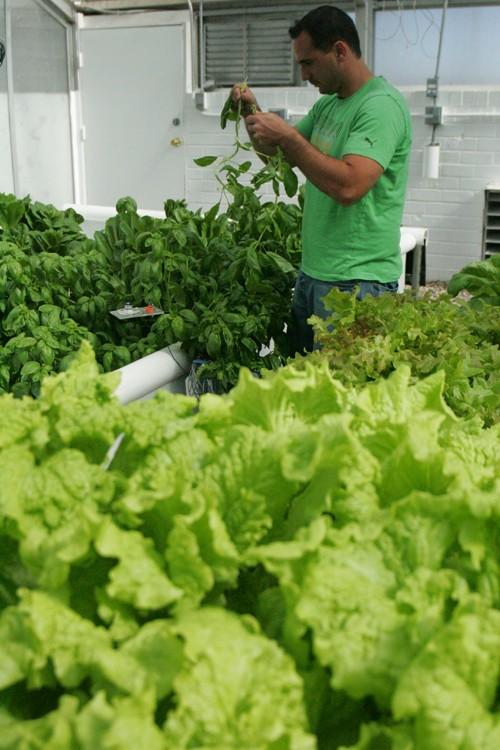In a world desperately in need of solutions to a growing food shortage crisis, one UA student has engineered a solution that could have large-scale applications for the food industry.
The latest installment of the Flandrau Science Center’s lecture series “”Science Café,”” will feature agriculture doctoral student Jason Licamele, who will talk about a process he has developed to sustainably produce food using an unlikely fertilizer: fish waste.
The process, Licamele said, involves taking the waste generated by farmed tilapia to feed hydroponically grown produce, including lettuce, basil and strawberries.
“”The idea is that by coupling these two ideas together you can grow a lot of food in a small area,”” Licamele said. “”You could grow just about any crop you want.””
In a partnership with the UA’s Controlled Environment Agriculture Center and the Environmental Research Lab, Licamele has expanded his program from a few tanks to his own hydroponic lab on campus as he identifies the ideal fish-to-plant ratio.
Licamele has even marketed his produce, which he said could qualify for organic certification, to local restaurant Elle, 3048 E. Broadway Blvd.
“”In the future we might end up developing a business out of this,”” he said.
Concerns about whether the process is hygienic can be put to rest, Licamele said, because the fish waste is heavily filtered, leaving behind only concentrated nutrients.
“”It’s like natural organic fertilizer for the plants,”” he said.
If you go:
What: Science Café – Aquaponics: Whetting your appetite for sustainable food production
Who: Jason Licamele, Ph. D Candidate in the Department of Agriculture and Biosystems Engineering, open to the public
Where: Cushing Street Bar & Restaurant, 198 W. Cushing St.
When: 6 p.m.
How much: Free









